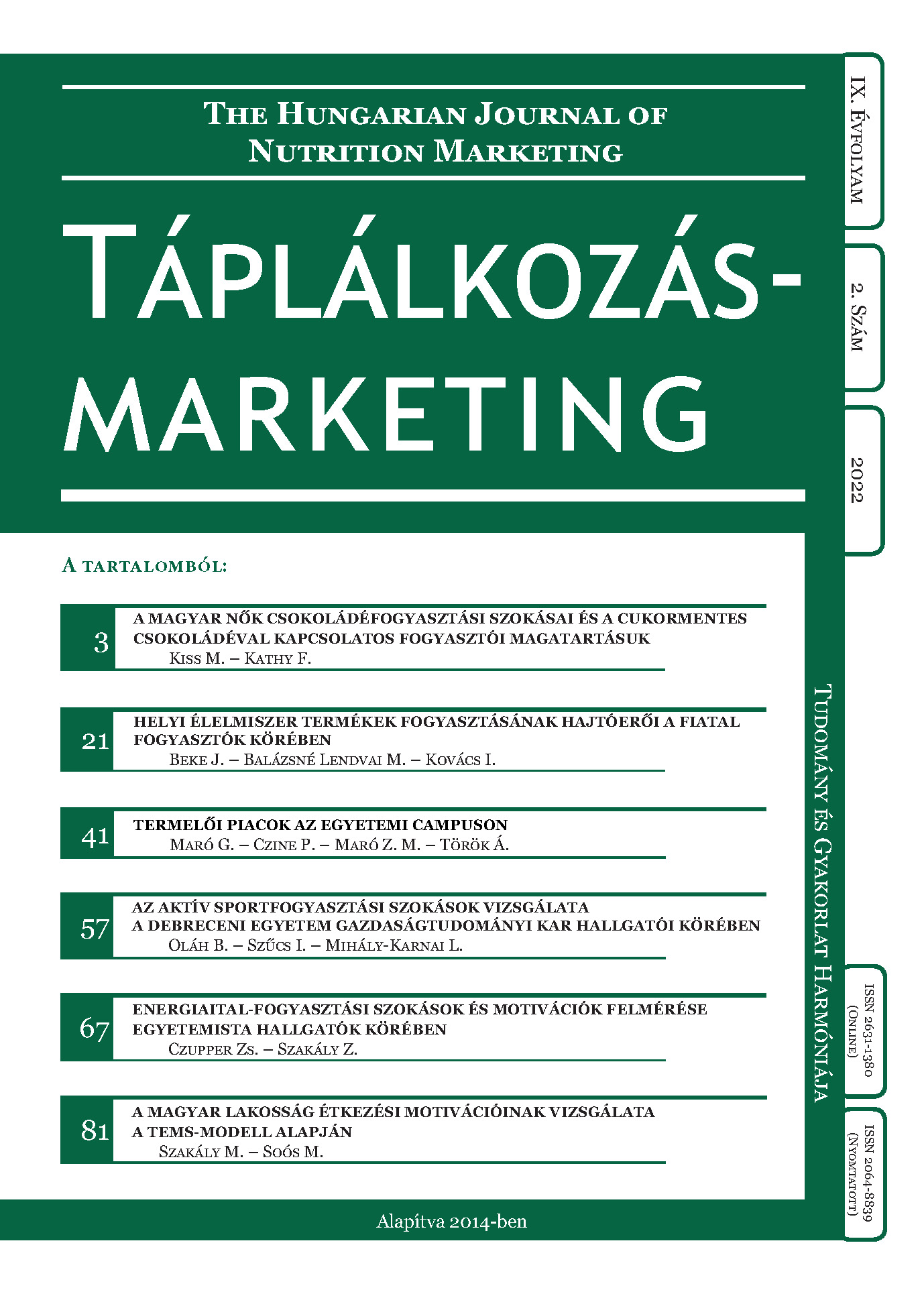Farmers' Markets on the University Campus
Authors
View
Keywords
License
Copyright (c) 2022 Maró Gréta, Czine Péter, Maró Zalán Márk, Dr. Török Áron

This work is licensed under a Creative Commons Attribution-NoDerivatives 4.0 International License.
How To Cite
Abstract
Short food supply chains are increasingly studied areas of international studies. Many see their spread as the solution to sustainability in agriculture. One of its defining sales channels is farmers' markets, their number has grown dramatically in Hungary in recent years. Many studies analyse the consumers of farmers' markets worldwide, but only a few studies examine the relationship of university students with farmers' markets. However, there are examples of this in the USA; it is even typical that farmer's market is organized on university campuses. University students are not typical buyers of farmers' markets, but they will be the consumers of the future, so it is worth examining their habits and needs. With the help of a questionnaire filled out by 382 university students, we investigate whether there is a difference between the food shopping habits of the university students examined in previous studies and the ones analysed in the current study. Do they have clearly identifiable habits of purchasing on the farmer's market? Is there a demand to organize farmers' markets on university campuses in Hungary? The food shopping habits of university students studying in Hungary are largely the same as the habits of university students examined by previous research. For university students, the price, comfort, the selection, and quality aspects of the products dominate. 31% of the university students, who filled out the questionnaire, have never shopped at a farmer's market; while among those, who purchase there food, only 21% do this regularly. The main obstacle for non-regular shoppers is the distance from farmers' markets, which can be solved by organizing farmers' markets on university campuses. 95% of the sample is open to this, so it would be worthwhile to conduct separate research for each university and put the positive results into practice.
JEL-Codes: O13, P46, Q13


 https://doi.org/10.20494/TM/9/2/3
https://doi.org/10.20494/TM/9/2/3





